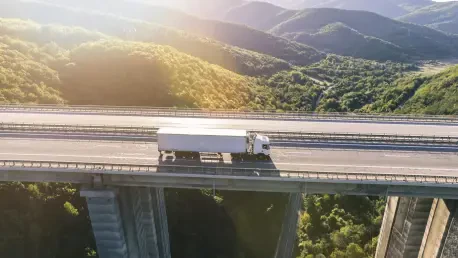Massachusetts has decided to delay enforcement of its Advanced Clean Trucks (ACT) rule, pushing the mandate for zero-emission vehicles (ZEVs) to 2027, marking a significant development for the commercial trucking industry within the state. The ACT rule, initially introduced in California and subsequently adopted by Massachusetts and four other states, requires Original Equipment Manufacturers (OEMs) to sell ZEVs to earn credits for internal combustion diesel engine sales. This stringent regulation faced pushback from trucking groups, citing a lack of demand and infrastructure for ZEVs as critical roadblocks.
Revised Enforcement Policies
Adjustments to Manufacturer Requirements
The Massachusetts Department of Environmental Protection (MassDEP) acknowledged the industry’s concerns and announced new enforcement policies. These policies provide manufacturers struggling to meet ZEV sales requirements with greater leeway. Specifically, manufacturers who fail to meet the ZEV quotas for the 2025 and 2026 model years will receive some flexibility, provided they continue to make internal combustion engine (ICE) trucks available to distributors. This approach aims to strike a balance between advancing environmental goals and addressing the practical challenges faced by the industry.
Such a policy adjustment allows manufacturers to focus on building the necessary infrastructure and consumer demand for ZEVs while maintaining the availability of cleaner diesel trucks. Manufacturers now have additional time to develop and perfect ZEV technology, potentially leading to more successful long-term outcomes in reducing emissions without stifling the current market.
Stakeholder Perspective and Industry Impact
The Transportation Association of Massachusetts (TAM) and over 50 affiliated trade groups and businesses welcomed MassDEP’s decision. They expressed appreciation for the state administration’s recognition of the significant impacts of the ACT rule on various stakeholders, including businesses, municipalities, and residents. These groups highlighted the necessity of collaboration with the state government to develop viable strategies for reducing emissions in the transportation sector while considering the current technological and infrastructural limitations.
Local municipalities also supported the enforcement modification. The Massachusetts Municipal Association praised MassDEP’s acknowledgment of market realities and the flexibility provided to local leaders tackling climate change while managing limited budgets. This flexibility aids in balancing environmental responsibilities with financial constraints, helping municipalities to plan and implement changes more effectively.
Long-Term Environmental Commitment
Continuing Efforts Towards Emissions Reductions
Despite the delay being viewed as a short-term win for the trucking industry, the ACT rule’s ultimate mandate for ZEV sales remains in effect, with compliance now required from the 2027 model year onwards. Massachusetts remains dedicated to the ACT rule’s long-term objectives, emphasizing the benefits of improved air quality and reduced global warming emissions from the transportation sector.
MassDEP reiterated the necessity for manufacturers to invest in both ICE and ZEV production and distribution networks. By doing so, the state aims to ensure a smoother transition to electric trucks, facilitating a future wherein high-emission vehicles are phased out in favor of cleaner alternatives. Such a dual investment approach underscores the importance of not only regulatory compliance but also proactive engagement with evolving technology and market dynamics.
Balancing Environmental Goals and Market Realities
Balancing the imperative of environmental goals with market realities represents a central theme in Massachusetts’ revised enforcement strategy. The consensus among stakeholders remains optimistic, with a shared commitment to mitigating technological and infrastructural constraints while continuing to push for emissions reductions. By setting a more realistic timeline for compliance, the state is fostering an environment where innovation and regulatory requirements can progress in tandem.
The delayed enforcement provides an opportunity for all parties involved to recalibrate and collaborate more effectively. With support from both the industry and local government, the path forward includes continued investment in technological advancements and a gradual but definite shift towards zero-emission solutions. This delay is seen not as a retreat but as a strategic adjustment, reinforcing Massachusetts’ commitment to its environmental goals while addressing current practicalities.
Future Considerations
Preparing for the 2027 Mandate
As Massachusetts looks ahead to the 2027 mandate, preparations will be essential for ensuring a successful transition. The state’s pragmatic approach underscores the need for continued dialogue between regulators, manufacturers, and stakeholders. By focusing on developing infrastructure, increasing consumer awareness, and refining technology, the groundwork is laid for substantial progress towards a cleaner transportation sector.
Further policy adjustments might be necessary as the deadline approaches, reflecting evolving market conditions and technological advancements. Maintaining a flexible and responsive regulatory framework will help Massachusetts navigate the complexities inherent in such a significant shift. The ultimate goal remains clear – significantly reducing transportation-related emissions to benefit public health and the environment.
The Path Forward
Massachusetts has chosen to delay the enforcement of its Advanced Clean Trucks (ACT) rule, moving the mandate for zero-emission vehicles (ZEVs) to 2027. This decision marks a significant change for the commercial trucking sector in the state. The ACT rule, which was first introduced in California and later adopted by Massachusetts along with four other states, mandates that Original Equipment Manufacturers (OEMs) must sell ZEVs to earn credits for sales of internal combustion diesel engines. This strict regulation encountered resistance from trucking groups. They cited crucial obstacles such as inadequate demand for ZEVs and insufficiencies in the supporting infrastructure as the main issues. The delay provides an extended timeline for addressing these concerns and developing the necessary infrastructure to support the adoption of zero-emission trucks, thus easing the transition for OEMs and the commercial trucking industry.









